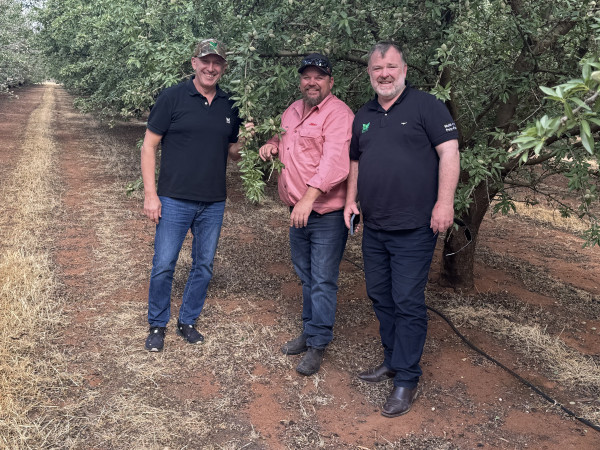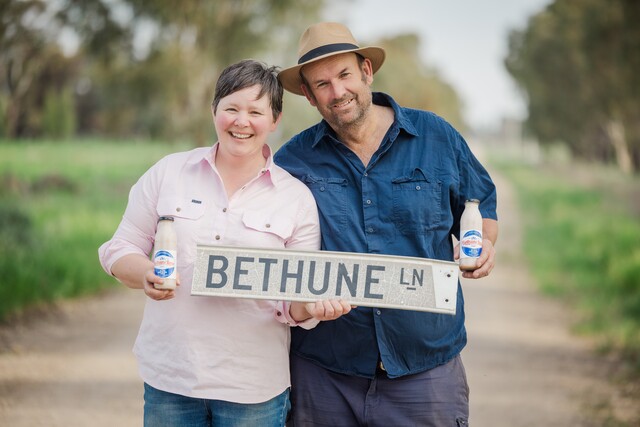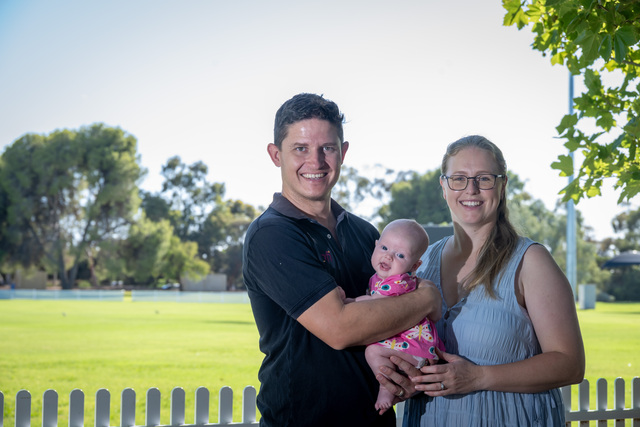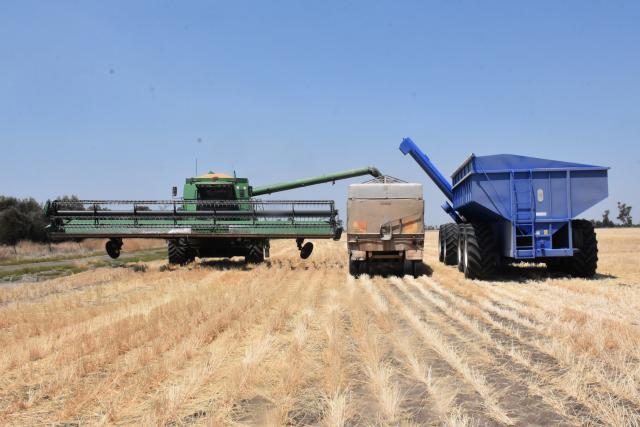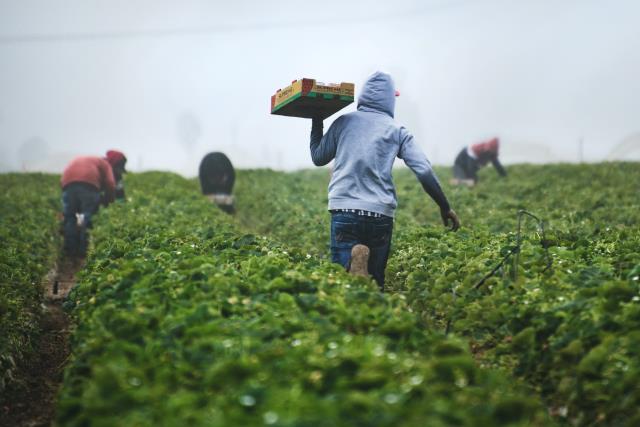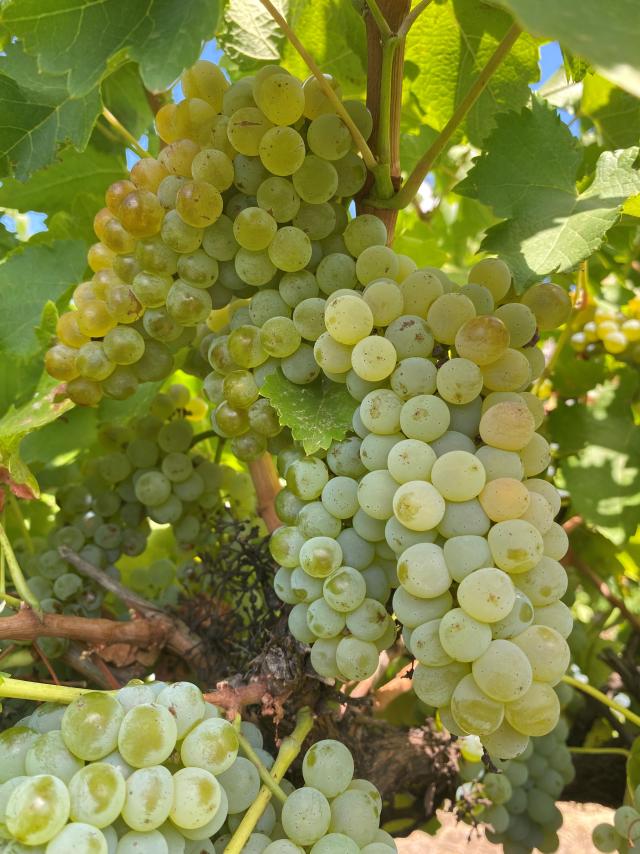MOTTI Levin isn’t pulling any punches about the future of farming – from here in the Mallee to anywhere in the world.
He hasn’t got the time to do anything else, he’s way too busy globetrotting to sell the message that unless agriculture takes a very quick, very hard, long look at itself, we are all in trouble.
Here for this month’s 2024 Australia Almonds Conference, where he met with Sunraysia and Mallee producers, business clients and researchers, the head of Israel’s Haifa Group told North West Farmer things have got to change if the whole industry is going to go anywhere near what the world is expecting in the next 50 years.
Haifa Group is one of the world’s largest specialty fertiliser suppliers and when the opening line from its boss is we need to use less fertiliser, not more, it makes you wonder if the world has gone mad.
Well, yes, in some ways it has, he says.
“There is a traditional approach to fertiliser, that more is usually better. And when things aren’t going well, add more fertiliser,” Mr Levin said.
“And that would be wrong.
“In many cases more is probably doing more damage than good – the future is nutrient use efficiency, getting the right product in exactly the right place at exactly the right time.
“Get that right and we are well on our way to securing the food demands which we all know are coming.”
The maths, Mr Levin said, was irrefutable.
He said it had taken the world just 125 years to see its population soar from 1.8 billion to more than eight billion. According to the UN’s food and agriculture organisation (FAO) that number will leap another 40 per cent in the next 26 years.
Meaning agriculture will be expected to feed more than 11 billion people.
At the same time FAO says food consumption will rise a staggering 70 per cent and must be grown on 13 per cent less arable land.
“It also means irrigation will have to increase by 50 per cent to sustain that kind of increase in food production,” Mr Levin said.
“All of which explains why we need to get smart about fertiliser now, doubling your annual urea order is not going to double your production, is not going to go anywhere near what we will all need to deliver.
“Australia has made good gains with precision agriculture and adopting more sustainable practices that, ultimately, also help mitigate climate change, but various other regions have a way to go.
“To grow higher yielding crops to help feed the world, the natural tendency has been to apply more, but we have over-fertilised and, ironically, contributed to the climate crisis.
“We need to increase precision agriculture methods, including using smart fertilisers and feeding crops through their roots or leaves, rather than by enriching the soils.
“Smart fertilisers better optimise crop nutrient usage for higher yields, they reduce costs for growers and they help protect the environment.
“To ensure long-term global food security, the pathway to precision agriculture and sustainable industry practice needs to take its next steps.”
And Mr Levin is putting his money where his mouth is.
Haifa is investing more than $A1 billion into the expansion of its manufacturing facilities and sustainable development capability, including $400 million into a new ammonia plant producing blue ammonia, the major raw material used in the production of nitrogen fertilisers.
Renewable energy produced from 40ha of photovoltaic panels will fuel the production of the low emission, cleaner ammonia, which has been trademarked, Blumonia.
Nearby, a CO2 plant will be constructed to capture and store the emissions from the ammonia production process. The high concentration and high purity CO2 will be used by the food and beverage industries, as well as the agricultural sector, including the seaweed superfood industry.
In another decarbonisation move by the company, Mr Levin said a railway line and terminal was being established directly into its facility to effectively mobilise everything.
“The entire supply chain, from production to distribution through to the end usage of our products, is a process we are striving to make circular, sustainable and with minimal impact on the environment, which we measure and monitor throughout the process,” he said.
Haifa has also broadened its fertiliser product portfolio, from its flagship potassium nitrate to enriched fertiliser blends and controlled release products, and with more recent significant investments into micronutrients, biostimulants and other sophisticated plant nutrition solutions.
Mr Levin said is also personally on the wider industry frontline – he has recently been appointed chair of the plant nutrition working group at the International Fertiliser Association (IFA).
Also one of the world’s first fertiliser suppliers to sign the global compact initiative of the UN and its sustainable development goals, Haifa Group has supercharged its drive for improved precision agriculture and sustainability with enormous investment into its manufacturing plants as well as product and application technologies.
Mr Levin said the factory investments and new technologies would significantly reduce the company’s carbon footprint and, also importantly, the environmental footprint of agricultural operations, which would come under increasing scrutiny into the future.
Supporting the product range is ongoing development with digital agricultural solutions to assist the design of fertiliser programs and real-time decision-making, which Mr Levin said would help further enhance efficiency and sustainability for growers.
One of the latest digital developments has been an app called Croptune, which, from leaf photos taken by smartphone cameras, can identify the level of nitrogen in crops and aid agronomic decisions.
“In the future, this platform will integrate more modules such as irrigation and plant protection, as well as predict carbon emissions,” Mr Levin said.
“These technological advances not only increase productivity, but also contribute to climate change mitigation by reducing the environmental footprint of agricultural operations.”
He said by embracing innovative precision practices and leveraging cutting-edge technologies, the industry could create a resilient agricultural framework that served the needs of the population and preserved the planet for future generations.
“At Haifa, we simply believe that by helping growers produce more food while reducing their environmental impact, we can make a positive impact on the world,” Mr Levin said
And Mr Levin, Haifa and Israel are all pretty familiar with that.
When it comes to revolutionising how the agricultural industry moves forward, he thinks back to the 1930s when Simcha Blass was the most high-profile Jewish water engineer in then Palestine.
Between 1930 and 1948 he would plan the first modern aqueduct in the Jordan Valley and was a co-founder of Mekorot (now Israel’s national water company).
In 1946 he planned the first water pipeline to the Negev – using pipes which had originally fought the fires of the Blitz in London during World War II and which he subsequently purchased.
The reliable water set up 11 settlements in the desert region, and supplied the Bedouin as well, and played a pivotal role in the UN including most of that region in the fledgling state of Israel when it was established in 1948.
In the late 1950s, with the development of plastics, Simcha and his son Yeshayahu would design and patent the world’s first commercial drip irrigation system.
And with Kibbutz Hatzerim in 1965 signed a contract establishing the Netafim Irrigation Company.
“Israelis have pioneered many critical advances such as those because in many ways we had to,” Mr Levin said.
“Our country had a quickly growing population and it had to be fed, so we learnt very early on to make more from less, to be more efficient with water and to be more efficient with fertiliser.”
“Obviously different regions have different demands – from capsicums in Mexico to almonds in the Sunraysia – but the principle remains the same, even if the solution is slightly different.
“And that principle is precision agriculture, and Haifa, with its deep knowledge of agronomy has spent decades tailoring solutions for different parts of the world, and different products, and is why we now operate in more than 100 countries with more than 400 types and/or combinations of nutrition solutions.”
Mr Levin also believes education will be a critical part of the fast-track ahead of agriculture.
He said all Haifa’s research was available to the world for free – and in 16 languages on its website.
“It is one of our strengths, we are trying to help the whole industry, not just us, not just our clients, but everyone,” Mr Levin said.
“Now is not the time for conservatism, in Israel we have never been able to be in a comfort zone, and now the rest of the world is experiencing that in the face of our massive population growth and all that means..
“Now is the time to be very smart very quickly – for your readers they can look at Israel and in most cases see a mini Mallee.
“If it works for us the same thinking, the same attitude and the same technology will work in northwest Victoria, I have been there, I have seen what you are doing, and the similarities are patently obvious. We will both do well to focus on getting more from less by using a lot of change and innovation.”

